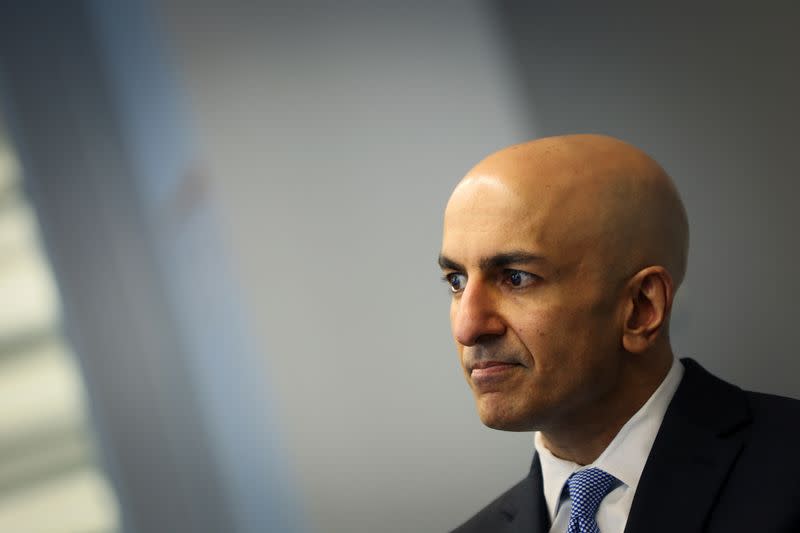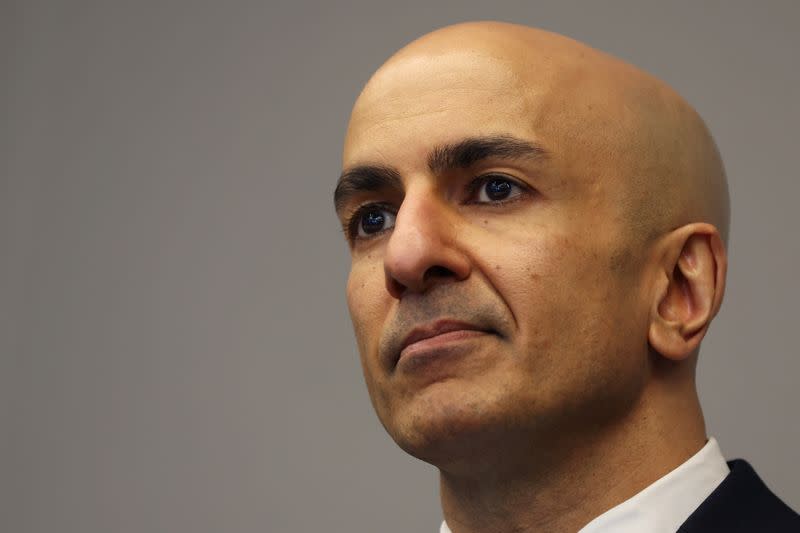Fed's Kashkari cautions against all-clear on banking woes
By Michael S. Derby
NEW YORK (Reuters) - Federal Reserve Bank of Minneapolis President Neel Kashkari cautioned that while it may appear like the worst of the banking sector’s stresses are over, history showed more trouble can't be ruled out.
“It’s far too soon to declare all-clear” and say that actions by the Fed, Treasury and other regulators have arrested the surge of bank problems that erupted in March, Kashkari said Monday in an interview with Reuters.
That sense of caution is driven by his experience as a top government official involved in helping resolve the financial crisis over a decade ago.
Kashkari, who became leader of the Minneapolis Fed in 2016, served at the U.S. Treasury Department between 2006 and 2009, and in 2008 helmed the Troubled Assets Relief Program, which used government money to help stabilize the banking system.
The year he took charge of that program was the most acute phase of the crisis, culminating in the failure of investment bank Lehman Brothers in September 2008. On the way to that crisis moment there were false dawns that had led observers to believe the worst was over.
“2008 is just imprinted on me,” Kashkari said. He noted investment bank Bear Stearns collapsed in March of that year, noting, “A couple months went by and we thought, okay, that was the worst. And then obviously, things got much worse from there.”
The global financial system was rattled in March by the failure of two banks in California that raised questions over how banks, especially regional ones, were navigating the central bank’s very aggressive course of rate rises that kicked off in March 2022.
The banking troubles drove the Fed to extend substantial amounts of liquidity to the financial system, and while that lending has backed off from March, the central bank was still extending just over $300 billion in loans to banks as of last Thursday, a number that dwarfs what it lent directly to banks in 2008 during the worst phase of the financial crisis.
Fed officials have contended, on balance, that lending as well as the launch of a new program called the Bank Term Funding Program, has put banks on solid footing, allowing policymakers to focus monetary policy decisions on mainly economic factors.
“The banks and the banking system are strong and resilient and well-positioned to deal with the challenges they may face, now or in the future,” Fed Chair Jerome Powell said on Friday.
But for Kashkari, it’s too soon to say that banks are out of the woods. Still, Kashkari praised the Fed’s response to the troubles, saying “I think we largely got it right, in terms of being able to address the mark-to-market losses that (banks) were facing.”
Kashkari was interviewed as the Fed’s June 13-14 policy meeting is looming. The Fed has raised rates aggressively over 14 months in a bid to lower high levels of inflation. But now, with price pressures abating, and amid heavy uncertainty over how tighter credit conditions caused by March’s bank woes will affect the outlook, many policymakers are signaling it may be time to hold off on raising rates again and take stock of how the economy is responding to recent events.
Kashkari is open to a pause, but he cautioned that if the Fed doesn’t raise rates in a few weeks, it’s critical that it doesn’t take off the table the option of swinging back into action.
“I don't want us to declare that we're done” because it’s entirely possible future data could call for more rate increases, Kashkari said.
(Reporting by Michael S. Derby, Editing by Nick Zieminski)

 Yahoo Finance
Yahoo Finance 

